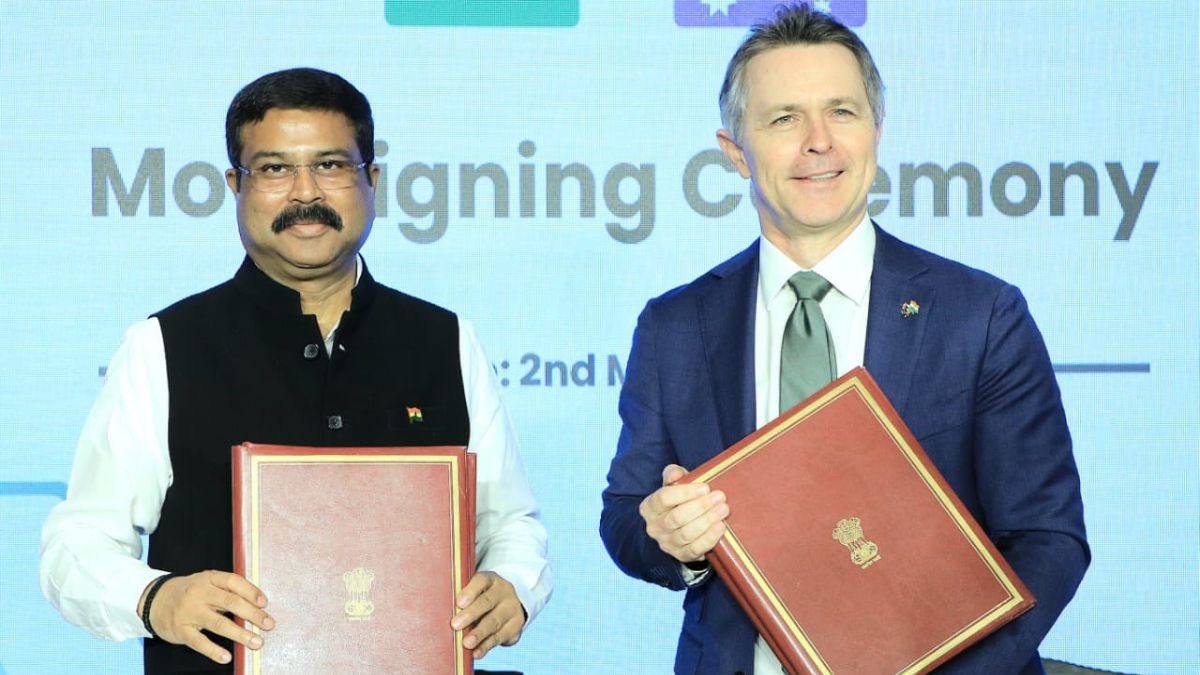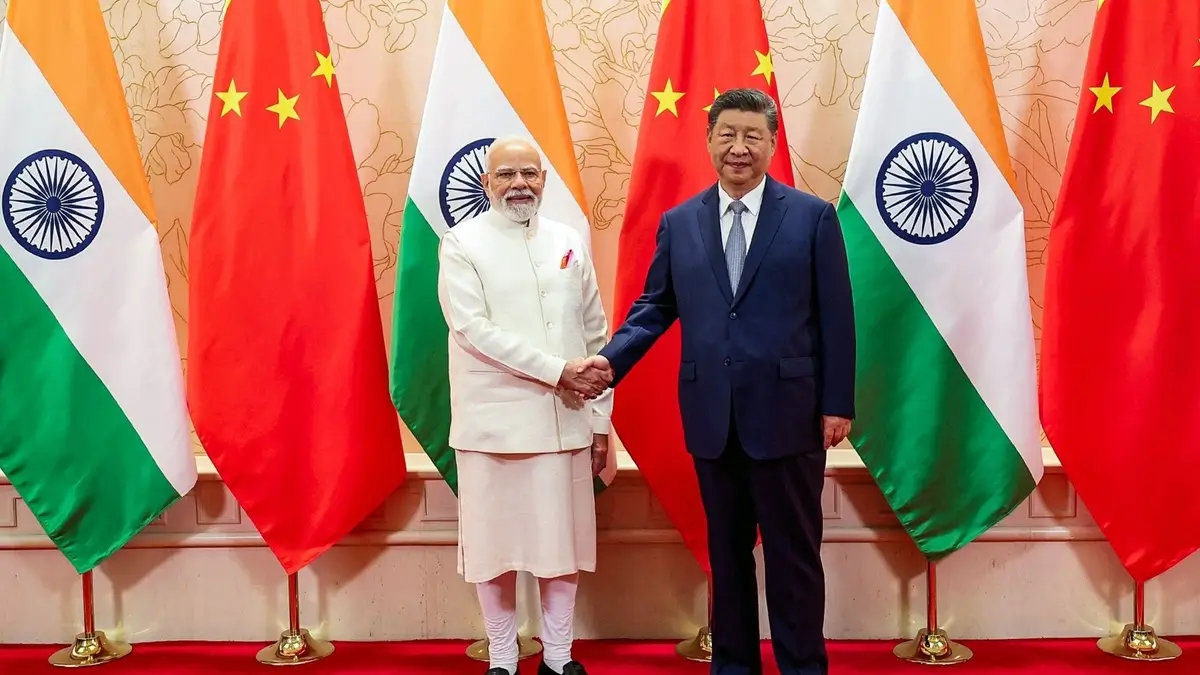India Australia mutual recognition : India and Australia sign framework for mutual recognition of qualifications
India and Australia recently signed a framework mechanism for the mutual recognition of qualifications. This agreement is expected to facilitate the recognition of each other’s educational qualifications and lead to greater mobility of skilled professionals between the two countries.
The framework mechanism was signed during a virtual meeting between the two countries’ education ministers, Dharmendra Pradhan and Alan Tudge, on April 15, 2023. Under the agreement, Indian and Australian higher education institutions will be able to enter into formal partnerships, allowing for greater collaboration in research and teaching.
India’s Minister for Education, Dharmendra Pradhan, expressed his optimism about the agreement’s potential benefits, stating that it would “unlock opportunities for students and professionals alike.” Alan Tudge, Australia’s Minister for Education and Youth, similarly praised the agreement, calling it a “milestone in the Australia-India education relationship.”
The mutual recognition of qualifications is expected to boost both countries’ economies and workforce development efforts. Indian students and professionals will now have greater access to the Australian job market, and vice versa. This agreement also aligns with the broader goal of expanding international cooperation in education and research.

B) Why this News is Important:
Title: Importance of India and Australia’s Mutual Recognition of Qualifications
India and Australia’s recent agreement to recognize each other’s educational qualifications is an important development for students and professionals preparing for government exams in a variety of fields. Here are some of the reasons why this news is significant:
Boosts Job Opportunities: The mutual recognition of qualifications is expected to lead to greater mobility of skilled professionals between India and Australia. This will create more job opportunities for Indian and Australian students and professionals looking to work in either country.
Facilitates International Collaboration: The agreement allows for Indian and Australian higher education institutions to enter into formal partnerships, facilitating greater collaboration in research and teaching. This will help to foster innovation and advance knowledge in a variety of fields.
Aligns with International Cooperation in Education: The mutual recognition of qualifications aligns with the broader goal of expanding international cooperation in education and research. This agreement is a positive step towards promoting greater exchange and understanding between India and Australia.
C) Historical Context:
Title: Historical Context of India and Australia’s Mutual Recognition of Qualifications
India and Australia have a long history of collaboration in education and research. In 2014, the two countries signed a memorandum of understanding (MOU) to promote academic and research collaborations, and in 2018, they signed another MOU to boost cooperation in higher education.
The recent framework mechanism for the mutual recognition of qualifications builds on these past agreements and further strengthens the ties between India and Australia in the education sector. The agreement reflects a growing trend of international cooperation in education and research, as countries seek to address global challenges and advance knowledge in a variety of fields.
Key Takeaways from India and Australia’s Mutual Recognition of Qualifications
Here are the five most important takeaways from India and Australia’s recent agreement to recognize each other’s educational qualifications:
| Serial Number | Key Takeaway |
|---|---|
| 1. | The agreement will facilitate the recognition of Indian and Australian qualifications in each other’s countries, allowing professionals to pursue their careers without undergoing additional training. |
| 2. | The agreement aims to enhance the mobility of skilled professionals between the two countries, creating opportunities for work and study in each other’s markets. |
| 3. | The recognition of qualifications will promote a sense of security and confidence among Indian and Australian students who are pursuing higher education in each other’s countries. |
| 4. | The agreement represents a significant step towards strengthening the bilateral relationship between India and Australia, enhancing cooperation in education and facilitating cross-border mobility. |
| 5. | The agreement aligns with India’s National Education Policy 2020 and Australia’s National Strategy for International Education 2025, which aim to foster international collaboration and promote high-quality education. |
Important FAQs for Students from this News
What is the significance of the mutual recognition of qualifications between India and Australia?
Answer: The mutual recognition of qualifications between India and Australia is significant because it facilitates greater mobility of skilled professionals between the two countries, creates more job opportunities, and promotes international collaboration in education and research.
How will the agreement impact job opportunities for professionals in both countries?
Answer: The agreement is expected to create more job opportunities for professionals in both countries by removing barriers to the recognition of educational qualifications, which will enable greater mobility of skilled professionals between India and Australia.
Is the mutual recognition of qualifications limited to specific fields of study?
Answer: The mutual recognition of qualifications is not limited to specific fields of study, but covers a wide range of educational qualifications, including degrees, diplomas, and certificates.
What is the broader goal of expanding international cooperation in education and research?
Answer: The broader goal of expanding international cooperation in education and research is to address global challenges and advance knowledge in various fields, and to promote greater understanding and collaboration between nations.
What is the expected impact of the agreement on the economies of India and Australia?
Answer: The agreement is expected to have a positive impact on the economies of both countries by promoting greater workforce development and job opportunities, and by facilitating international collaboration in education and research.
Some Important Current Affairs Links

















